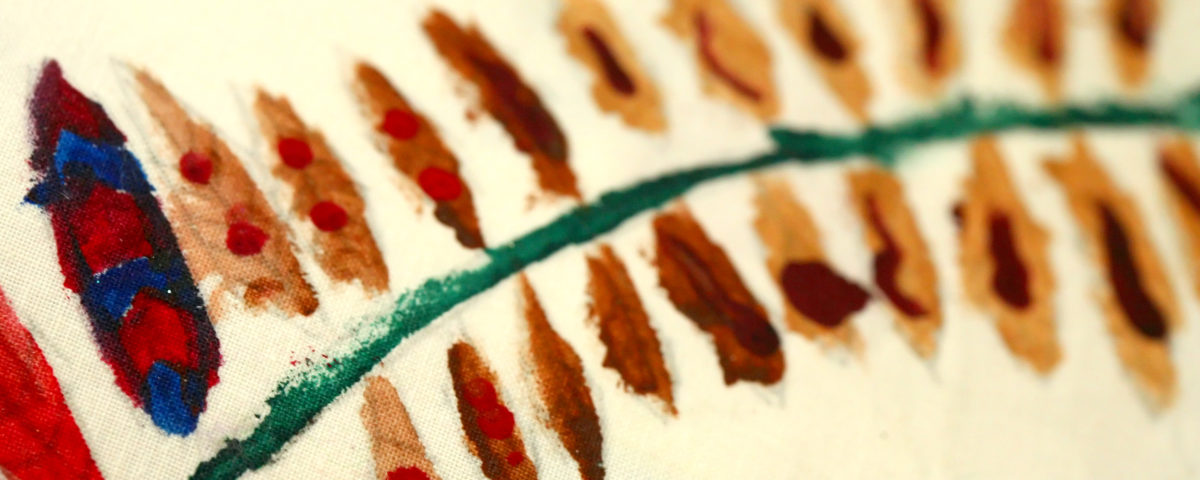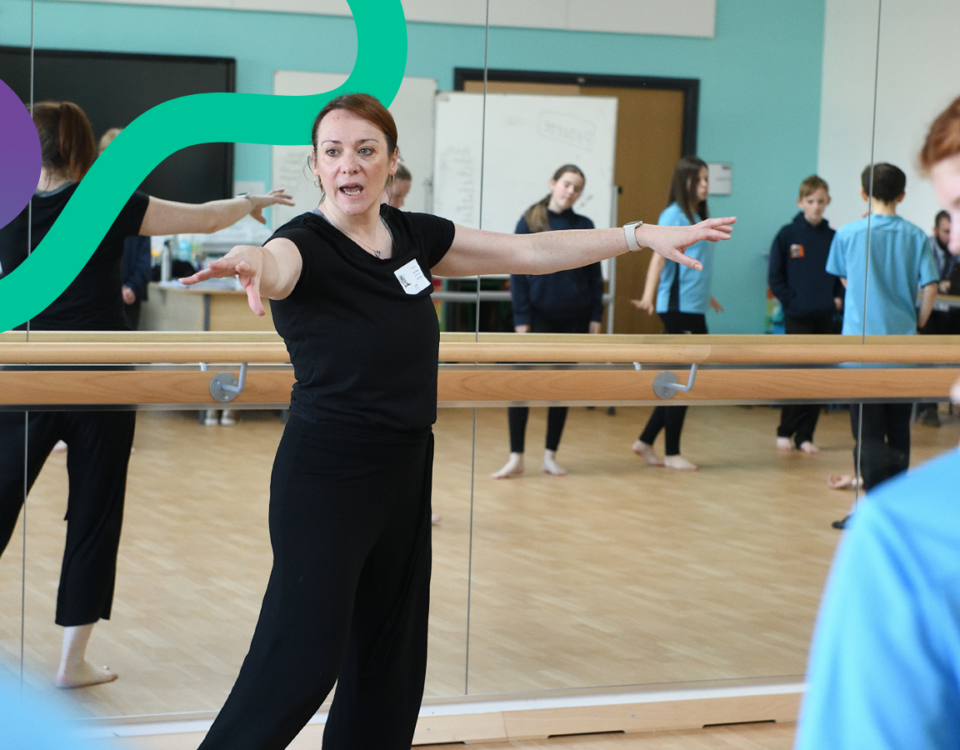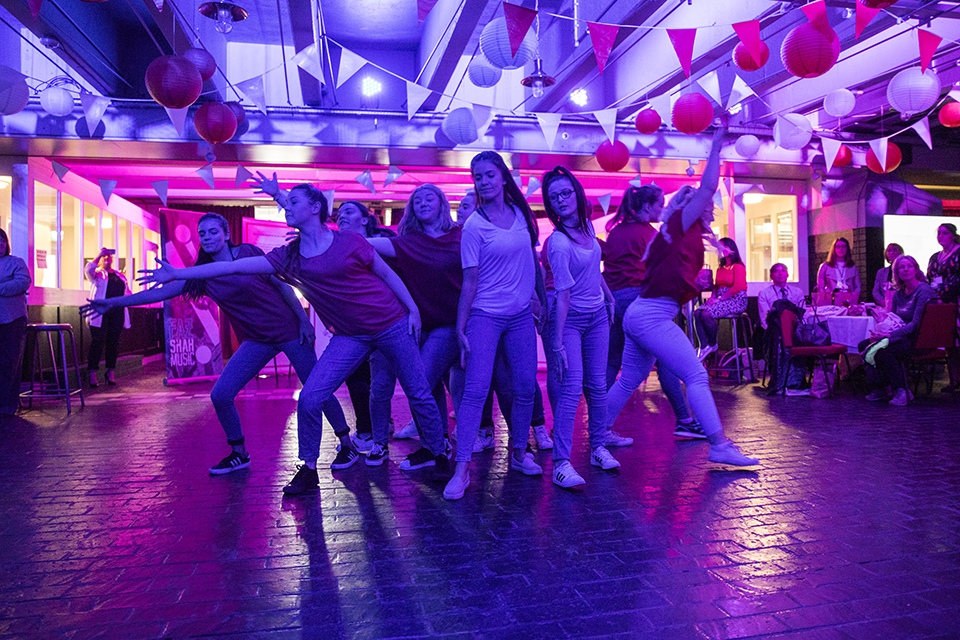
£1m HLF funding for ‘Hope Streets’ project
July 13, 2017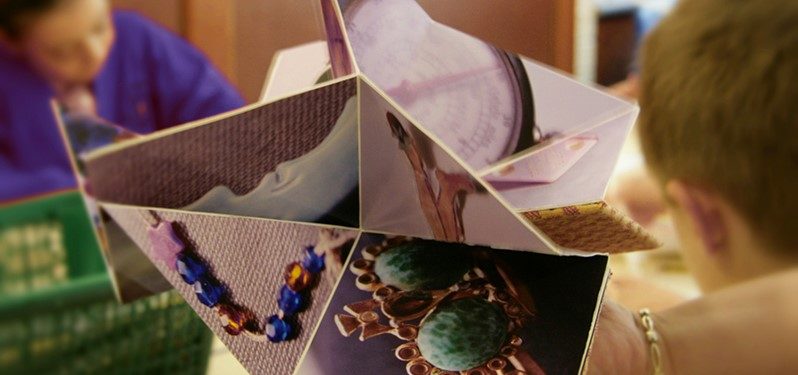
Curious Blog: Summer Progress
September 15, 2017Failing Forward: Reflections on the National Arts Fundraising and Leadership Summer School
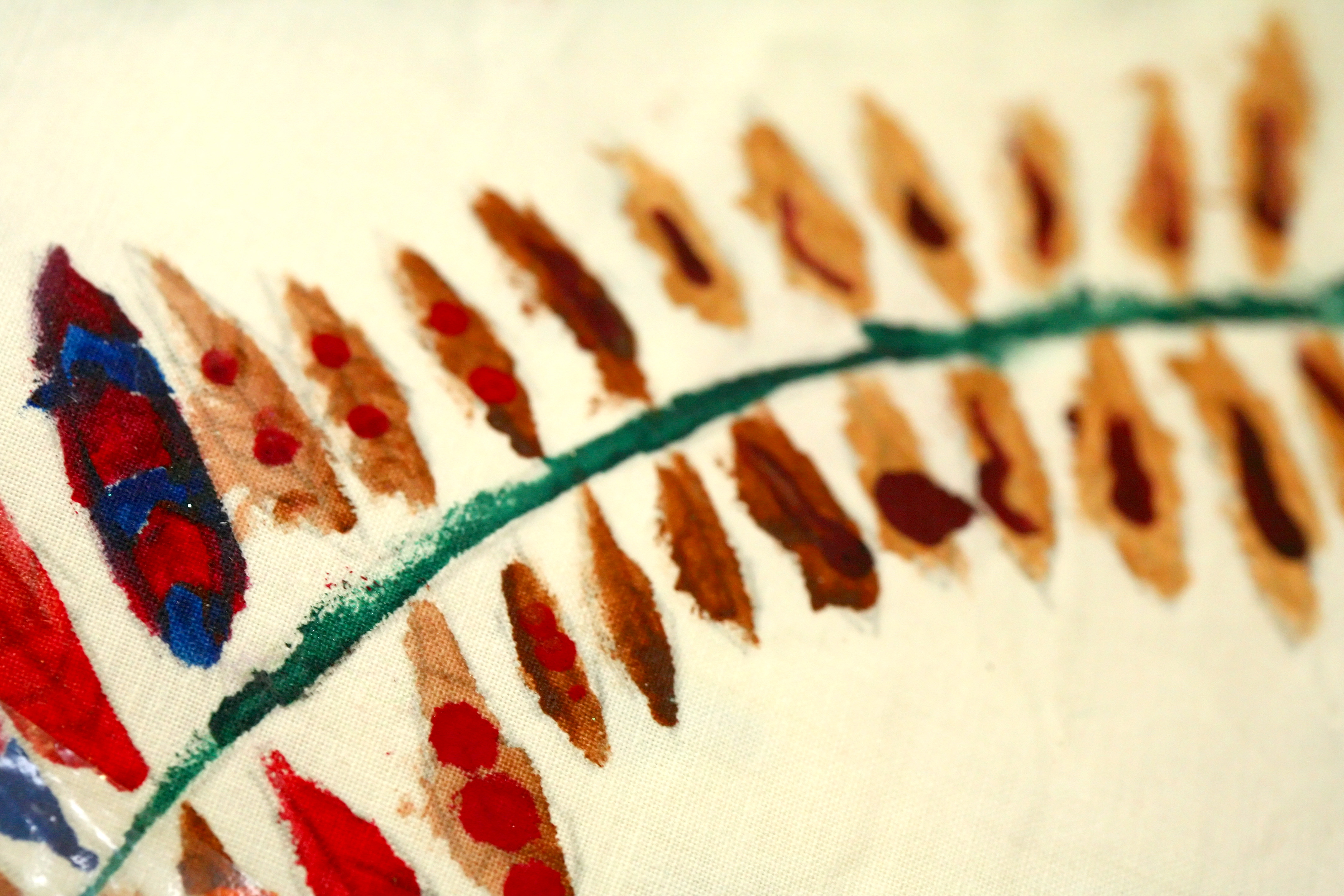
Thinking about failing
The week before last, we were part of a group that undertook an interesting experiment. If you type the word ‘success’ into the search box on the Arts Council England website, there are 282 returns
Type the word ‘failure’ and there are 3.
We were taking part in Leeds University’s Arts Fundraising and Leadership Summer School. Our task was, in a short space of time, to research and succinctly present an idea to our fellow delegates by the end of the week. We set about exploring the notion of failure in arts funding.
After days of head-scratching and circling the notion of failure, we stumbled into searching the ACE website under those two words: success and failure. The results helped underline the question that seemed to be emerging from our conversations:
Are public arts funders operating with an anti-failure bias?
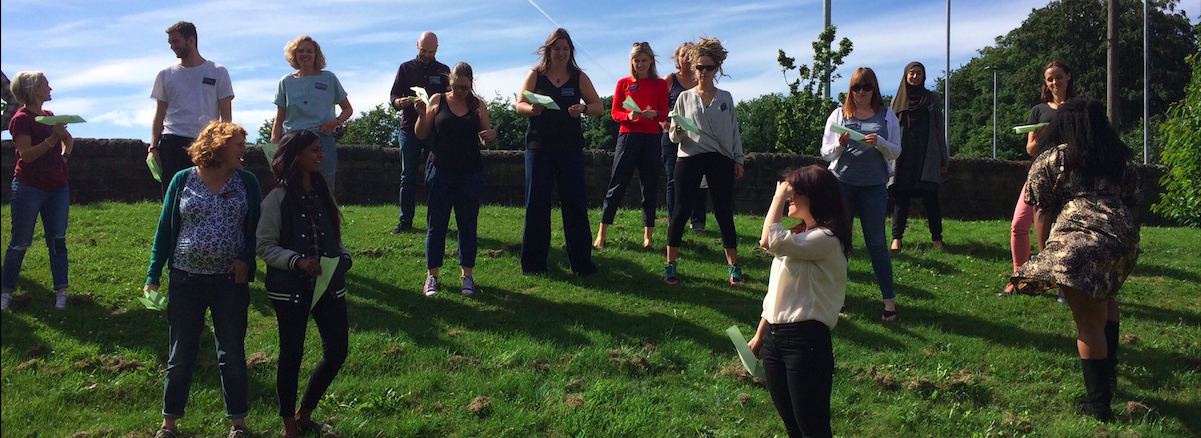
An Antifailure Bias
The literature from business studies appeared to contribute the most to our theme. Rita McGrath (1999) for example, suggests our thinking, interpretation and analysis is distorted by our ‘obsessive failure avoidance’ or what she calls an ‘antifailure bias’.Is this true of the arts? We looked at evaluations from publicly funded arts projects. The language did seem to obfuscate when it came to failure. Claire Antrobus described this as ‘evaluator speak’ – putting spin on programmes that are yet to evidence the immediate achievement of their objectives.
Ben Walmsley told us resilience is all about finding new ways of working. Innovation, in other words. Surely innovation emerges from testing ideas and learning from failure?
As the arts and culture sector is encouraged to innovate in order to become more resilient, shouldn’t we be more open to an examination of what hasn’t worked? Are we thinking about this right?
Errors in thinking
McGrath (ibid) suggests that an antifailure bias leads to errors in our learning and interpretation of our failures. There are three main errors in thinking relating to:
1. Extrapolating the future from past success
2. Cognitive bias
3. Interventions designed to avoid repeating failure
So what do these errors in thinking look like in detail? Can we recognise any of our own working practices in McGrath’s descriptors?
Errors in thinking caused by an antifailure bias
There might be some familiar ways of working in the tables below, adapted from McGrath (2016, 17-19)
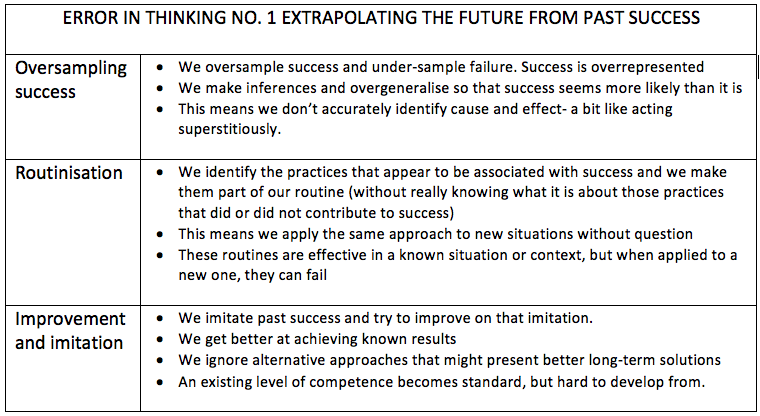
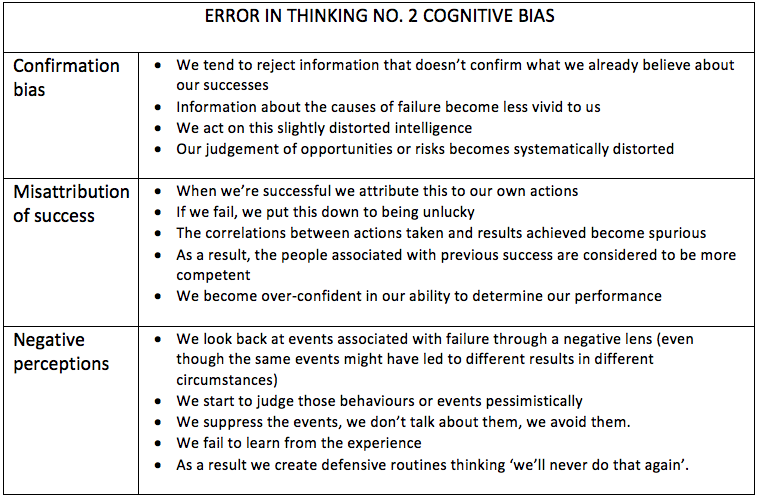
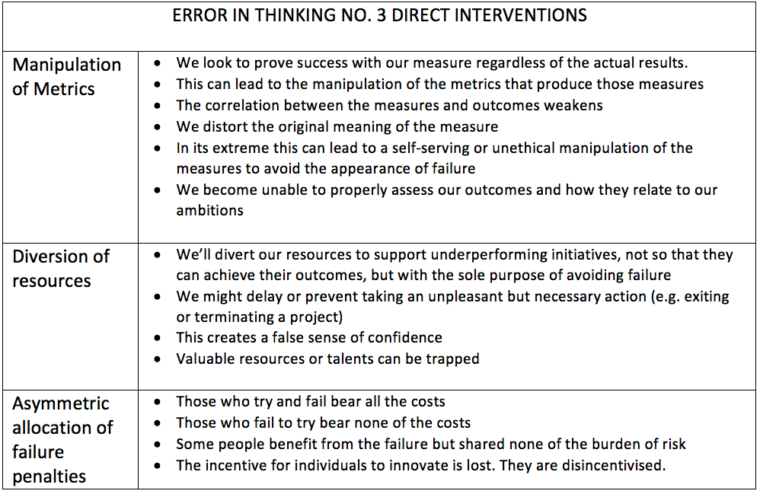
Does the arts and cultural sector operate within an anti-failure paradigm?
The business studies literature seems to warn us not to be afraid of failure, that failure is good for innovation. Some of what we read told us that the churn of small businesses entering and exiting the market is a feature of a thriving economy. Others argued it doesn’t matter how many entrepreneurial enterprises fail because all the failures are worthwhile if just one initiative achieves significant success. We learned about the Pareto Principle – that 20% of effort often achieves 80% of success.
Aren’t the arts inherently risky? “…the whole point of the arts is that they are unpredictable. The artist launches off on a project, not knowing quite where it will lead, or whether it will lead anywhere at all” (Hewitt, 2016).
Intelligent failure
Perhaps the arts and cultural sector would benefit from shrugging off the antifailure bias in favour of intelligent failure (Sitkin cited in Cope 2011, 14). This is the notion that failure shouldn’t be pursued for its own sake, but that there are lessons we can take from the features of intelligent failure which:
• Is planned
• Has uncertain outcomes
• Is modest in scale
• Is executed and responded to with alacrity
• Takes place in domains that are familiar enough to allow effective learning
We concluded by reflecting on Brian McMaster’s 2008 recommendations to DCMS that the sector should operate as a more trusting environment, where innovation and risk taking are better rewarded.
Ever tried. Ever failed. No matter. Try again. Fail again. Fail better.
- Samuel Beckett.Authors: Steph Hawke (Curious Minds), Niamh White (Hospital Rooms); Paul Steele (Junction Arts).
Antrobus, C. 2017. Encouraging Private Giving, Arts Fundraising and Leadership Summer School, 17 July 2017 Leeds, Leeds University Beckett, S. 1983 Worstwood Ho. New York: Grove Press
Cope, J. 2011 Entrepreneurial learning from failure: An interpretative phenomenological analysis. Journal of Business Venturing 26 (6) 604-623
Hewitt, I. 2016, How we’ve got it wrong about the arts in The Telegraph, 28 May [online] [accessed 19.07.17] Available from http://www.telegraph.co.uk/art/what-to-see/how-weve-got-it-wrong-about-the-arts/
McGrath, R, G. 1999 ‘Falling Forward: real options reasoning and entrepreneurial failure, Academy Management Review 24 (1) pp. 13-30
McMaster, B. 2008 Supporting Excellence in the Arts; From Measure to Judgement London: Department for Culture, Media and Sport
Sargeant, A. and Shang, J. (2016) Outstanding fundraising practice: how do nonprofits substantively increase their income? International Journal of Nonprofit Voluntary Sector Marketing. 21: pp. 43–56
Sitkin, Sim B. 1992 Learning through failure: The strategy of small losses. In Cummings, L.L. and Staw, B.W. (eds.), Research in Organizational Behavior, Pg 41. Greenwich, CT: JAI Press.
Walmsley, B. 2017 Cultural Leadership’ Arts Fundraising Summer School, 19 July 2017 Leeds, Leeds University

